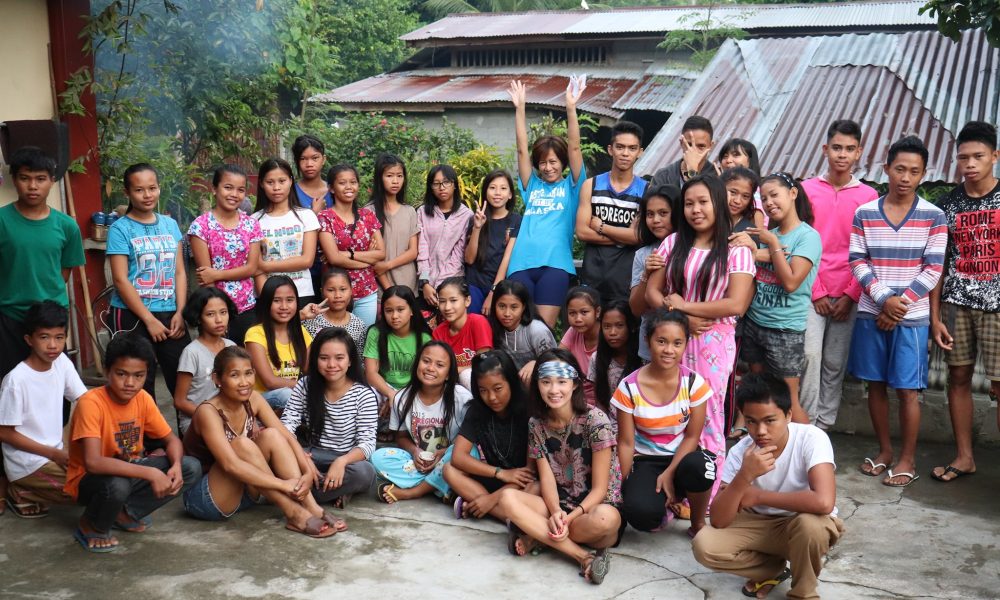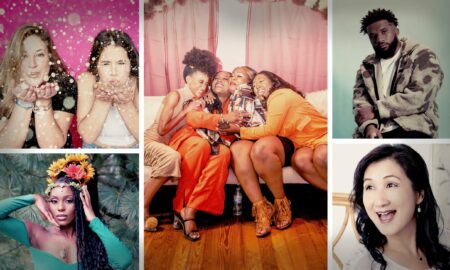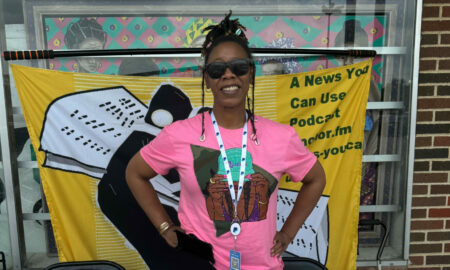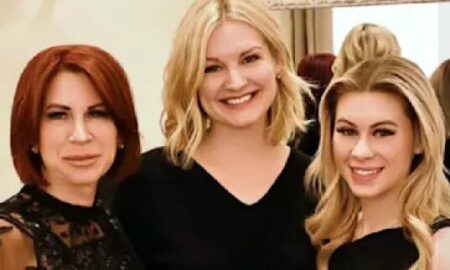

Today we’d like to introduce you to Averie and Marevi Bishop.
Averie and Marevi, please share your story with us. How did you get to where you are today?
For the past five consecutive years, I have traveled to my mother’s home country on behalf of our own nonprofit organization, The Tulong Foundation. Our foundation initially began as an effort to mediate the educational attainment gap between boys and girls in isolated villages of Mindanao, Philippines. My mother and I would raise money locally in Dallas to finance girls’ educational costs such as uniforms, transportation, and supplies. However, our foundation quickly grew financially and sought to address additional pressing social issues that provincial villagers brought to our attention. Access to clean, drinkable water was limited in southern Mindanao. Agriculture skills and sanitation knowledge were no longer up to modern, technological standards. Villagers even voiced their desire to ascertain entrepreneurial skills and financial literacy.
In the summer of 2018, with the partnerships of the Embrey Human Rights Program and the Maguire Center for Public Service and Ethics, I established a community self-efficacy program in the village of Banga, Mindanao. Over the course of directing my mother and I’s nonprofit foundation, I learned that what adults and students in impoverished regions need is not more text-book learning, but rather life skills that enable them to improve their financial prospects and well-being. These included financial literacy and entrepreneurial skills; health maintenance and management skills; hygiene and sanitation knowledge; and administrative capabilities, such as teamwork, problem-solving, and project management. Through the community self-efficacy program, I intended to address the skills gap and resource inaccessibility between provincial, isolated villagers and the more urban population located in northern Manila. Access to education and the knowledge of fundamental ethological skills is an inalienable right I believe everyone should have, regardless of one’s socio-economic class or geographical location.
Religious institutions, universities, and non-profit organizations often travel to underdeveloped countries and project onto communities what they believe is the right answer to the issues at hand. This is often problematic and does more harm than good to the individuals living in these communities. My humanitarian perspective was unique in that I did not believe my way of doing things was the right and only way. My priority was to first, listen. And second, take action. Often, these steps are reversed and produce repercussions that are left to the villagers to deal with on their own. I listened to what the villagers really needed to sustain a comfortable lifestyle and incorporated their wants into the curriculum that I taught. Ensuring that every individual had a seat at the table was not satisfactory. I strived to make sure that every voice at the table was heard as well.
Now, in 2019, with the help of the Asian American Dallas community, we have provided scholarships to over 30 children. Further, we have provided financial assistance in microloans for rural females and their entrepreneurial endeavors. Lastly, we have constructed three wells across the province of Banga that now produce drinkable water 24 hours a day, 7 days a week.
Great, so let’s dig a little deeper into the story – has it been an easy path overall and if not, what were the challenges you’ve had to overcome?
I definitely had no idea where to start or how to manage a nonprofit organization. My mother and I would not have been so successful had it not been for the supportive Asian American north Texas community. I would advise women who are just starting their journey to communicate with others as much as possible about their vision. Speak it into existence! Once you speak your vision into existence, it can quickly become a reality.
Please tell us about The Tulong Foundation.
In the Philippines, whether a child attends public or private institution school fees are mandatory. Students in public high school in the Philippines are required to pay annual educational fees that average around $50 U.S. dollars – this cost includes school uniforms, school supplies, and extracurricular activities. This financial burden is placed on parents whose priorities are making sure their children have enough food to eat, have shelter to come home to every evening, and clothing to wear. Even more unfortunate, poverty-stricken families of rural villages tend to send their sons to school over their daughters – a tradition that has reinforced the decaying rate of female graduates of the Philippines. Our mission is to alleviate the financial stress annual tuition creates within a students’ family and empower them to seek their academic ambitions.
The Tulong Foundation envisions a world where girls and boys of impoverished countries have the confidence to pursue all of their academic aspirations regardless of their socioeconomic background. While monetary aid from international humanitarian organizations is allocated to larger cities, our impact focuses on the much smaller villages and provinces that do not usually receive help because of their isolated location. Our volunteers and donors personally venture into the southernmost regions of the Philippines and connect with provinces who see little to no help from foreign philanthropy organizations. With your support, students from remote areas will be given the opportunity to pursue their academic interests without the challenges and hardships one faces while living in a rural, poverty-stricken community.
We initially created The Tulong Foundation to aid my mother’s hometown of Banga, Mindanao. Without a formal education, my mother knew the importance of achieving an education -, especially in a poverty-stricken community. With a heart to give and a mentality to encourage others, Marevi and her daughter Averie created The Tulong Foundation in 2015. It currently sponsors over 30 children in the south of the Philippines. The Foundation has expanded to include ventures such as teaching locals sustainable farming skills and how to find and filter clean drinking water. The Tulong Foundation has been chosen to attend the Clinton Global Initiative Conference, a forum that brings together civic leaders and humanitarian activists in order to create innovative solutions for the world’s most pressing matters. I have represented our nonprofit in Chicago, Boston, and New York international conferences for CGIU.
What advice would you give to someone at the start of her career?
It is so important to construct an achievable goal that is hyper-focused and sustainable. Once you create a game plan and speak it into existence, the final step – and, in my opinion, the most difficult step – is to fully commit to it. For my generation at least, we have difficulty committing: Committing to a college major, committing to a life long partner, committing to a place to live. While there may be benefits to keeping multiple doors open, it is so important to find that single thing or person that ignites a fire in you to make the world better. The unfortunate reality is that there are so many pressing social injustices in the world that need immediate action and I am sure that there are so many women out there who want to save the world by solving all the issues. However, our coalition of women in the United States and across international borders can accomplish so much more if we single out the sole thing that makes us extremely passionate and truly commit to it. Trust me. I want to save the world too! It’s okay to not have the capacity or power to resolve all the issues today. But take the first step and commit to a singular mission.
Contact Info:
- Website: https://www.thetulongfoundation.org/
- Facebook: https://www.facebook.com/TheTulongFoundation/







Getting in touch: VoyageDallas is built on recommendations from the community; it’s how we uncover hidden gems, so if you know someone who deserves recognition please let us know here.

















